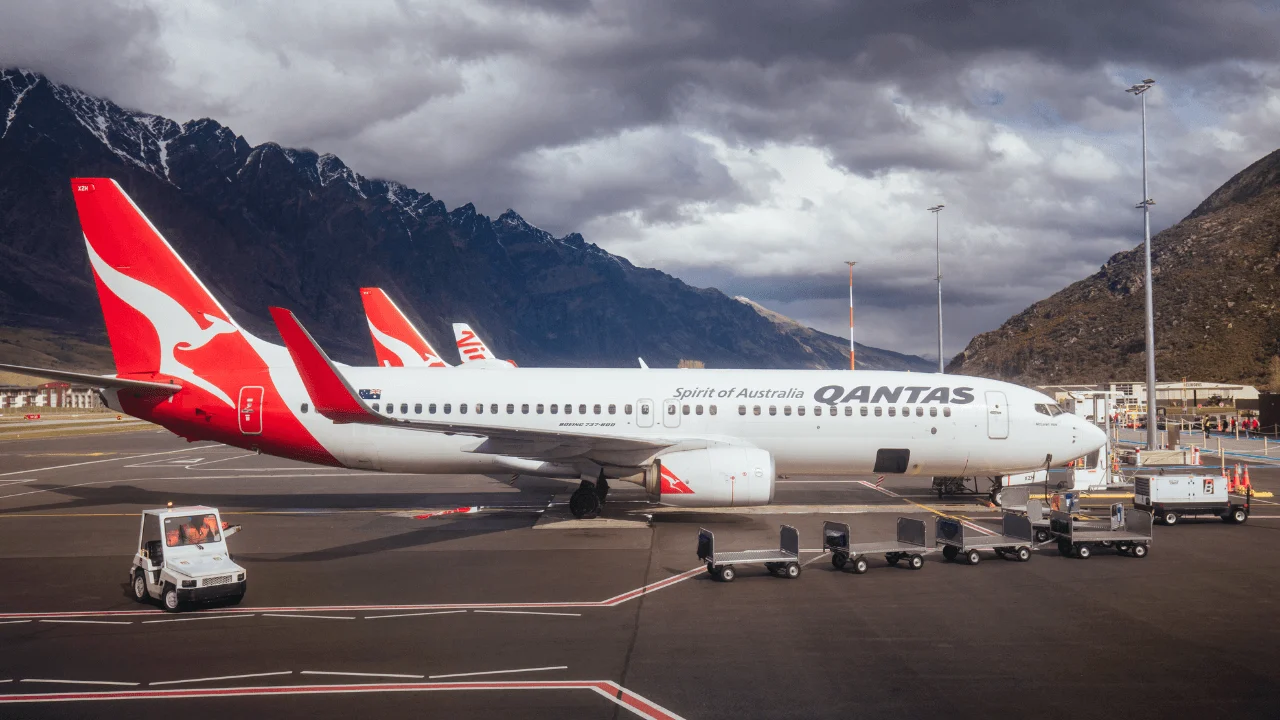
Qantas v TWU: A warning from the High Court to employers to take care when making commercial decisions adverse to their employees’ interests
Published on November 3, 2023 by Wing Ho | 何宛穎律師 and Peter Punch
On 13 September 2023, the High Court an important decision regarding the reach of the General Protections provisions found in Part 3-1 of the Fair Work Act 2009 (Cth) (“FW Act”) in connection with the outsourcing of work by an employer. The Court’s decision followed approximately 2 years of litigation by the Transport Workers’ Union (“TWU”) against Qantas Airways Limited (“Qantas”) and has now established authoritatively that Qantas contravened the FW Act when it outsourced its ground handling operations in November 2020. This article covers in depth the Qantas Airways Limited v Transport Workers Union of Australia [2023] HCA 27 case and how it impacts workplace law in Australia.
Factual background leading to litigation
On 30 November 2020, Qantas announced that it had decided to outsource its ground handling operations at 10 Australian airports (“outsourcing decision”). The outsourcing decision was taken against the backdrop of Qantas’ commercial aircraft being grounded due to and during the COVID-19 pandemic and was said by Qantas to be driven by “commercial imperatives”. That is, Qantas expected that the effect of the outsourcing decision, once business returned to normal, was to save it around $100 million a year in the costs of its ground handling operations, as well as having other commercial benefits, particularly a substantial reduction in capital expenditure (approximately $80 million) over the following five years.
Consequently, nearly 1,700 Qantas employees had their employment terminated by reason of the redundancy of their positions. The affected employees had been covered by two enterprise agreements. They were prevented by law from taking protected industrial action until their enterprise agreements had passed their nominal expiry dates. One enterprise agreement had already expired at the time of the outsourcing decision, however the other was not due to expire until 31 December 2020. The timing of the outsourcing decision effectively pre-empted the possibility of protected industrial action by the affected employees.
Litigation history
The main union representing the retrenched ground handling staff at Qantas, the TWU, sued Qantas in the Federal Court alleging that Qantas had contravened the General Protections provisions of the FW Act in that its outsourcing decision was “adverse action” against each of the employees (see below) and was a decision at least in part motivated by a desire to prevent the employees taking protected industrial action in the future (such as when the time came for the negotiation of a further enterprise agreement).
The series of judgments in the Qantas v TWU litigation commenced with a decision of a single judge of the Federal Court (“primary judge”) in July 2021, which declared that Qantas’ outsourcing decision contravened the FW Act. The primary judge subsequently issued a number of judgments arising from that declaration. The Court confirmed that Qantas had contravened the FW Act, declined to order reinstatement of the employees and dealt with case management (procedural) issues for the finalisation the case (e.g., in relation to compensation for the affected employees and the imposition of penalties on Qantas). The parties separately appealed to the Full Court of the Federal Court (“Full Court”) regarding the primary judge’s decisions on contravention and reinstatement. The Full Court handed down its decision in May 2022, dismissing the appeals. The parties then appealed to the High Court.
The relevant legislative provisions in the Fair Work Act
The case brought by the TWU relied on Part 3-1 in Chapter 3 of the FW Act, concerning “General Protections”. The Part has many provisions and has been the subject of extensive case law (including High Court decisions) over many years. The Part is mainly designed to protect workplace rights, freedom of association and involvement in lawful industrial activities.
Section 340 of the FW Act prohibits “adverse action”, by reference to a list of prohibited reasons. The key provision relevant to the Qantas v TWU litigation is s 340(1)(b), which prohibits a person from taking adverse action against another person “to prevent the exercise of a workplace right by the other person”. Under s 342 of the FW Act, “adverse action” is broadly defined to include examples such as discrimination, dismissal, refusal to employ a prospective employee, refusal to supply goods and services and so on.
Adverse action may be taken by:
- an employer against an employee;
- by a prospective employer against a prospective employee;
- a principal against an independent contractor;
- a principal proposing to enter into a contract against the prospective independent contractor;
- an employee against his or her employer;
- an independent contractor against a person who has entered into a contract for services with the independent contractor; and
- an industrial association, or an officer or member of an industrial association, against a person.
Not all adverse action is unlawful. However, if a prohibited reason is a substantive and operative reason for the taking of adverse action, it is in breach of the FW Act.
Section 361 imposes what is widely known as a rebuttable presumption against or a “reverse onus” on the employer. Broadly speaking, in many other areas of law, an applicant (or plaintiff) has the burden of proving all the elements of their cause of action (or claim). However, s 361 reverses the status quo by presuming that in a General Protections claim, the adverse action was taken for a prohibited reason unless the respondent can prove otherwise. That is, if the applicant (in this case the TWU) could prove all elements of its case other than the reason for the adverse action taken against the employee, the employer (in this case Qantas) had to prove a negative – i.e. that the adverse action it took against each employee was not because of a prohibited reason, or for reasons that included a prohibited reason.
Qantas’ arguments and findings by the lower courts
At the heart of Qantas’ submissions throughout the litigation was the argument that its outsourcing decision was driven by commercial reasons and did not include a prohibited reason. It denied that the outsourcing decision was taken with the intention of preventing the employees from exercising their right to organise protected industrial action in the future. The primary judge was not convinced that Qantas had discharged its onus and therefore could not be satisfied that the reasons for its outsourcing decision did not include a prohibited reason. Therefore, Qantas contravened the FW Act. The Full Court declined to overturn these findings against Qantas.
On appeal to the High Court, Qantas’ main contention was that section 340(1)(b) was confined to a presently existing workplace right. That is, the outsourcing decision could not be in breach of s 340(1)(b) because the employees’ right to take protected industrial action did not exist at the time of the decision and could not arise until after 31 December 2020.
The High Court’s findings
The full bench of the High Court delivered three separate judgments, which unanimously upheld the Full Court decision and that of the primary judge.
Through a process of textual, purposive and contextual analysis of the legislative provisions, the High Court found that s 340(1)(b) does extend to future workplace rights, not just those in existence at the time that the employer made the challenged decision (in this case, the outsourcing decision). The Court found that there was nothing in the language of the FW Act that justified the confined interpretation advanced by Qantas.
Commentary on evidence required to discharge onus under s 361
The primary judge found that Qantas’ evidence fell short of the standard required to discharge the onus of proof in relation to s 340(1)(b)[1]. His Honour also noted that some of the witnesses, who were involved at various stages of the decision-making process leading to the outsourcing decision, appeared determined not to make concessions which were adverse to Qantas’ interests and/or gave unconvincing or evasive answers [2].
There have been recent cases in the lower courts which considered the principles for proving unlawful adverse action where multiple employees within a company have contributed to the company’s decision to take the alleged adverse action. Justice Steward of the High Court directly addressed this topic, saying that it is necessary to distinguish between the actual or operative reason for taking adverse action and factors contributing to the causes for the adverse action[3]. Such an approach requires the courts to identify the real decision-maker or decision-makers involved. To answer these enquiries, the courts will generally pay close attention to the evidence given by the putative decision-maker(s).
Aftermath of the High Court decision – what next for Qantas?
The denouement after the High Court decision still has some time to play out. The case has been referred back to the Federal Court, where the parties have been ordered to attend mediation, for the purpose of them being encouraged to resolve the remaining claims for pecuniary penalties and compensation without further litigation. While the full details of the settlement (if reached) may never be made public, the size of the settlement is likely to be significant.
Take away points
This High Court decision confirms that taking adverse action to prevent not only the exercise of existing but also future workplace rights by employees will be a contravention of the General Protections provisions of the FW Act by the employer responsible.
The course of the litigation also demonstrates that this area of workplace law involves complex legal principles and presents evidentiary challenges for employers in discharging the “reverse onus” as to the reason(s) for taking adverse action against employees. That is, unless employers take steps to be informed of the relevant law and implement clear processes for decision-making, they may be exposed to paying compensation, as well as pecuniary penalties, for adverse action taken in contravention of the FW Act even if there were “commercial imperatives” for taking that action.
Aftermath of the High Court decision – Qantas required to pay substantial compensation
Following on from the High Court’s September 2023 decision the case was referred back to the Federal Court to determine penalties and compensation to be paid by Qantas arising from its contravention of the Fair Work Act 2009 (Cth).
The Court considered three tests cases from among the 1800 former Qantas employees affected by Qantas’ action. The Court’s ruling on these three cases led Qantas and the TWU to agree on a compensation fund of $120 million from which all the affected former employees would be paid out (in amounts that depended on their individual circumstances but could be as high in some cases as a year’s remuneration).
This final act in the drama of this long running litigation serves to illustrate the possible con sequences in a major cases for an employer that contravenes the Fair Work Act’s prohibition on “adverse action” being taken against employees for any of the prohibited reasons listed in the Act.
If you would like further information or advice about this topic, please contact Carroll & O’Dea Lawyers on 1800 059 278 or via our Contact Page.
[1] Transport Workers’ Union of Australia v Qantas Airways Limited [2021] FCA 873, [282] – [289].
[2] Transport Workers’ Union of Australia v Qantas Airways Limited [2021] FCA 873, [57] – [92].
[3] Qantas Airways Limited v Transport Workers Union of Australia [2023] HCA 27, [104] – [108].

